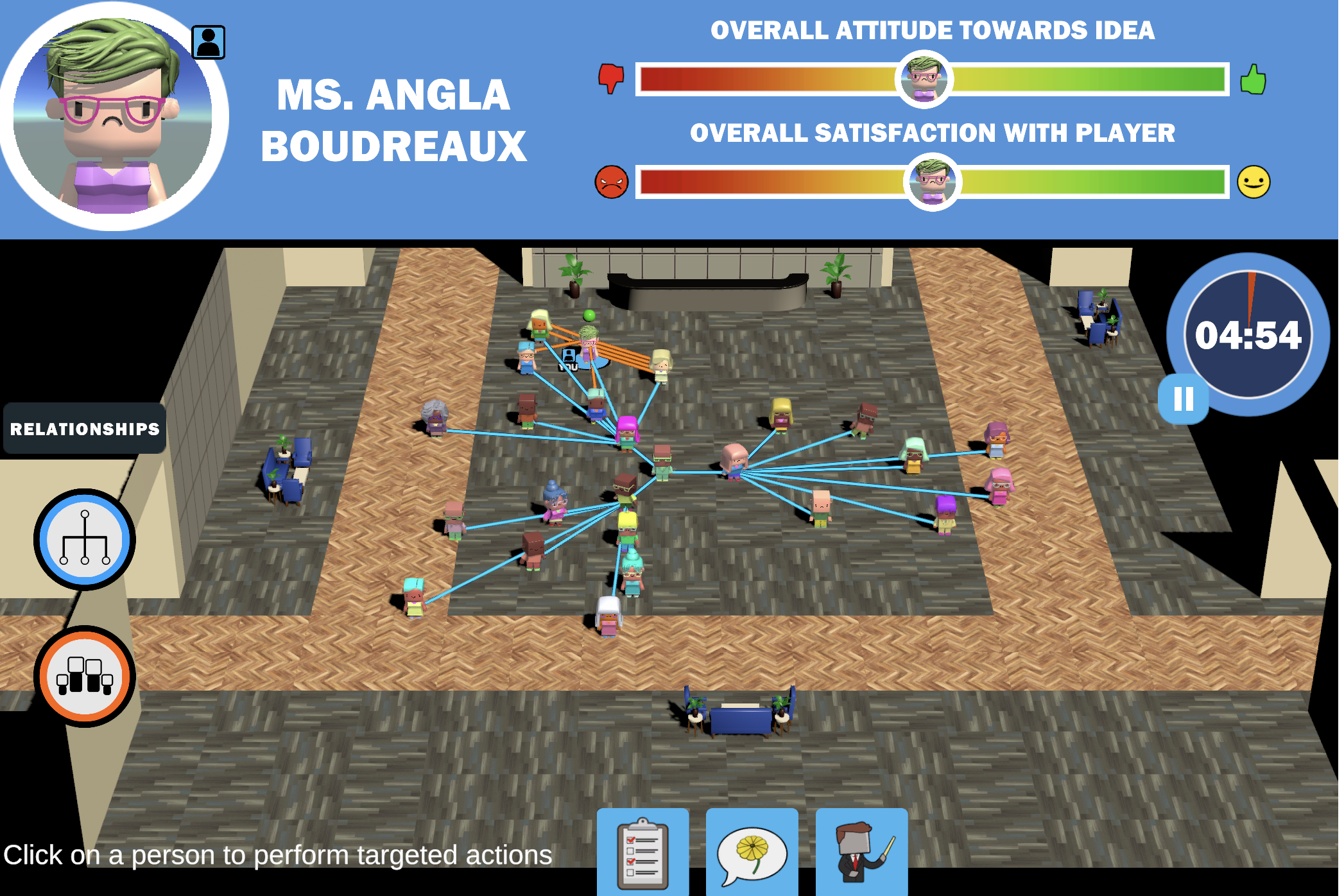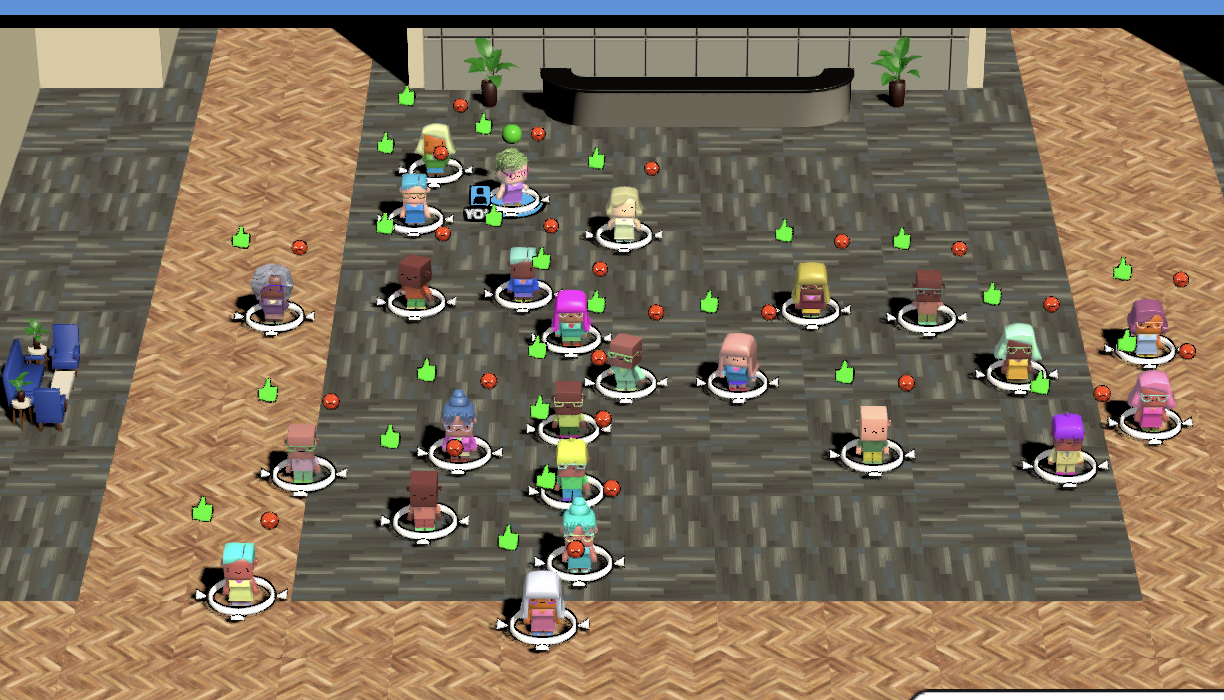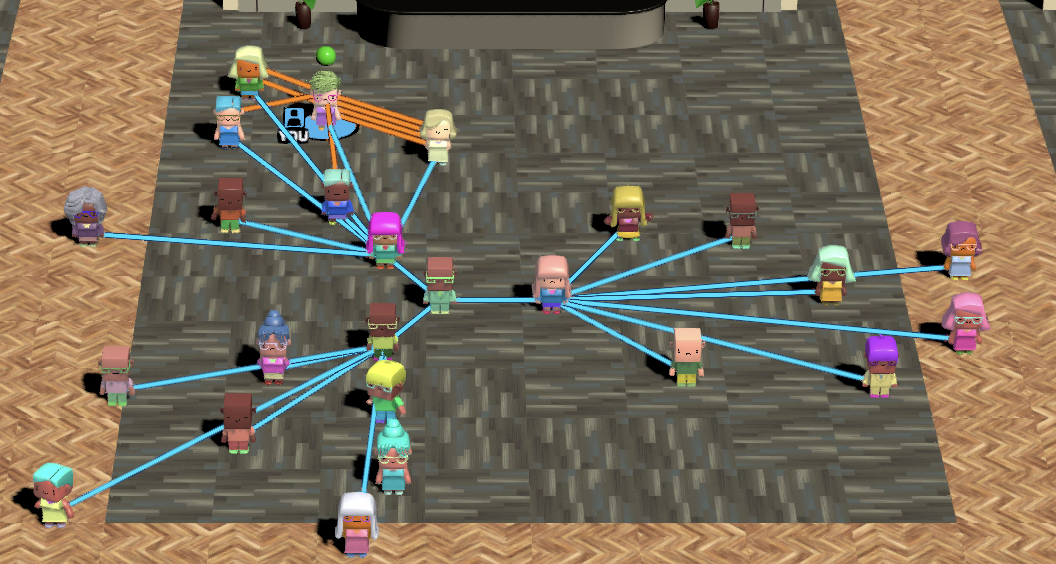Change Agent - Global ECCO
The Game
Change Agent Game Application for WPS:
Mainstreaming of women in traditionally male environments can challenge existing organizational and social structures.
Both men and women express concerns about working relationships, performance criteria, and fairness of pay and promotions in military roles (Gibbons, Nelson, & Suchan, 2017). The climate within an organization can be affected by the way that formal and informal leaders address these concerns. The U.S. Dept. of Defense, along with militaries in many other nations, has mainly confronted these challenges through top-down actions such as policy statements, reporting structures, designation of gender advisers, and formal training. Less attention has been given to interventions at the grassroots level where culture is shaped and reinforced daily through social modeling, conversations, and myriad other transmitters of embedded values and norms.
Organizational experts recognize that culture change requires coordinated action across all levels of the organization. Development of an integrated strategy for precipitating change, therefore, requires that we cultivate organization members’ capacity to intervene successfully when necessary. We need to develop change agents. The Change Agent game focuses on use of formal and informal social interactions to build support for new ideas and practices in organizations. The game operates on principles that have been identified through extensive research into diffusion of innovations. Students who play the game can see the results of their decisions, both immediately and as social influences accumulate over time. Relevant principles include: Informal networks that overlay the formal structures carry information and social influence. This is where people share ideas and diffuse attitudes and beliefs, especially about unfamiliar topics. The informal network structure in Change Agent
• reflects formal structures as well as homophily
• carries information and influences attitudes
• changes based on player interventions, in accordance with know principles
Formal networks and actions form baseline options for players to disseminate information. Formal diffusion mechanisms include
• top-down messaging
• required training
• surveys to identify levels of support or opposition
• positive messages shared generally in the organization
Players experiment with use of formal and informal mechanisms to diffuse their ideas, while the game tracks their progress. Debrief by a qualified instructor is important to help students generalize the lessons that they have learnedthrough playing the game.





